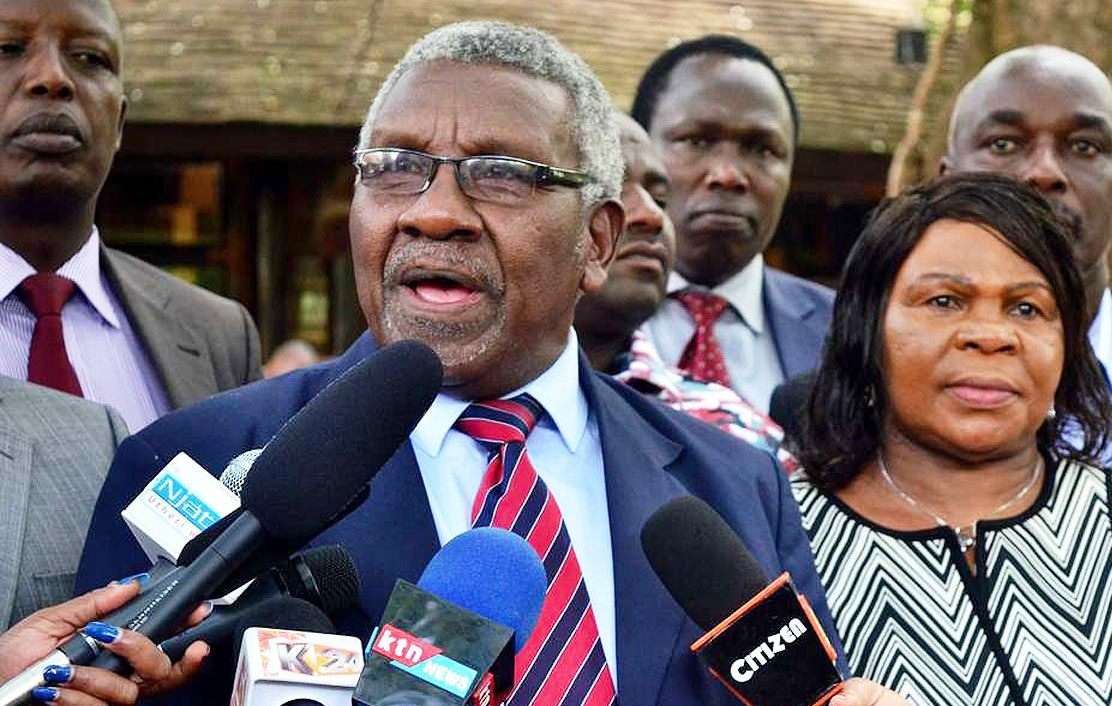The standoff has been further complicated by a court ruling two months ago, which temporarily halted the disbursement of the Ksh 10.5 billion allocated for counties’ road maintenance. The High Court ruling followed the National Assembly’s exclusion of county governments from benefiting from the Road Maintenance Levy Fund (RMLF). Justice Lawrence Mugambi issued the injunction, agreeing with the Counsel of Governors and other petitioners who argued that the move lacked legal basis and violated counties’ constitutional mandate to maintain road infrastructure
The deadlock surrounding the allocation of Ksh 400 billion versus Ksh 380.1 billion in shareable revenue to counties has escalated, with members of the National Assembly issuing new demands that must be met before any resolution can be reached. Key members of the National Assembly’s 18-member Mediation Committee have urged their Senate counterparts to engage with governors to withdraw the ongoing legal case over the Ksh 10.5 billion Road Maintenance Levy Fund (RMLF) to pave the way for constructive talks.
Co-chaired by Kiharu MP Ndindi Nyoro and Mandera Senator Ali Roba, the committee has emphasized that the current impasse is political and requires a political solution. The dispute arose after Senators insisted on upholding the Ksh 400 billion figure originally agreed upon during the mediation process. However, MPs in the National Assembly, following President William Ruto’s proposal, have backed a reduced figure of Ksh 380.1 billion, citing the withdrawal of the Finance Bill.
The standoff has been further complicated by a court ruling two months ago, which temporarily halted the disbursement of the Ksh 10.5 billion allocated for counties’ road maintenance. The High Court ruling followed the National Assembly’s exclusion of county governments from benefiting from the Road Maintenance Levy Fund (RMLF). Justice Lawrence Mugambi issued the injunction, agreeing with the Counsel of Governors and other petitioners who argued that the move lacked legal basis and violated counties’ constitutional mandate to maintain road infrastructure.
Funyula MP and Mediation Committee member, Otiende Amollo, reiterated that the matter is ultimately a political one, urging Senators to engage with governors ahead of the next meeting. “Let’s be honest—this is a political process. The Senate must meet with the Council of Governors to resolve the real issue: the actual figures for county revenue share and the court case over the RMLF,” Amollo said.
Nyoro also underscored the need for Senators to find common ground with governors before the next session. “We must be deliberate and provide a real solution. Ignoring the underlying issues would be dereliction of duty,” he stated, adding that a formal or informal session with the Council of Governors could be vital in breaking the deadlock.
Rarieda MP Otiende Amollo also reminded the committee of President Ruto’s veto on the County Allocation Revenue Act (CARA), which recommended a Ksh 380 billion share for counties, urging consensus to prevent a constitutional crisis.
Despite these calls for engagement, Senators have rejected the idea of intervening in the ongoing dispute between the National Assembly and the governors. Mandera Senator Ali Roba stated that involving the Senate in the RMLF issue would be futile, as their primary role is to oversee counties, not mediate between other parties. “It will be very hard to explain to the governors why the RMLF is blocking agreement on revenue share. This issue is not about the numbers; it is about the ongoing court case,” Roba said, expressing frustration over the lack of progress in the negotiations.
Migori Senator, who also criticized the ongoing standoff, expressed concern over the potential loss of Ksh 20 billion to counties. “It is bad faith to slash Ksh 20 billion from counties while the national government has access to additional funding through loans. Counties have no such options,” he stated, adding that the revenue cuts would severely impact county governments, which lack the borrowing capacity of the national government.
As the dispute continues to unfold, the political gridlock threatens to delay crucial funding for counties, exacerbating tensions between the National Assembly, Senate, and the governors, with no clear resolution in sight.





